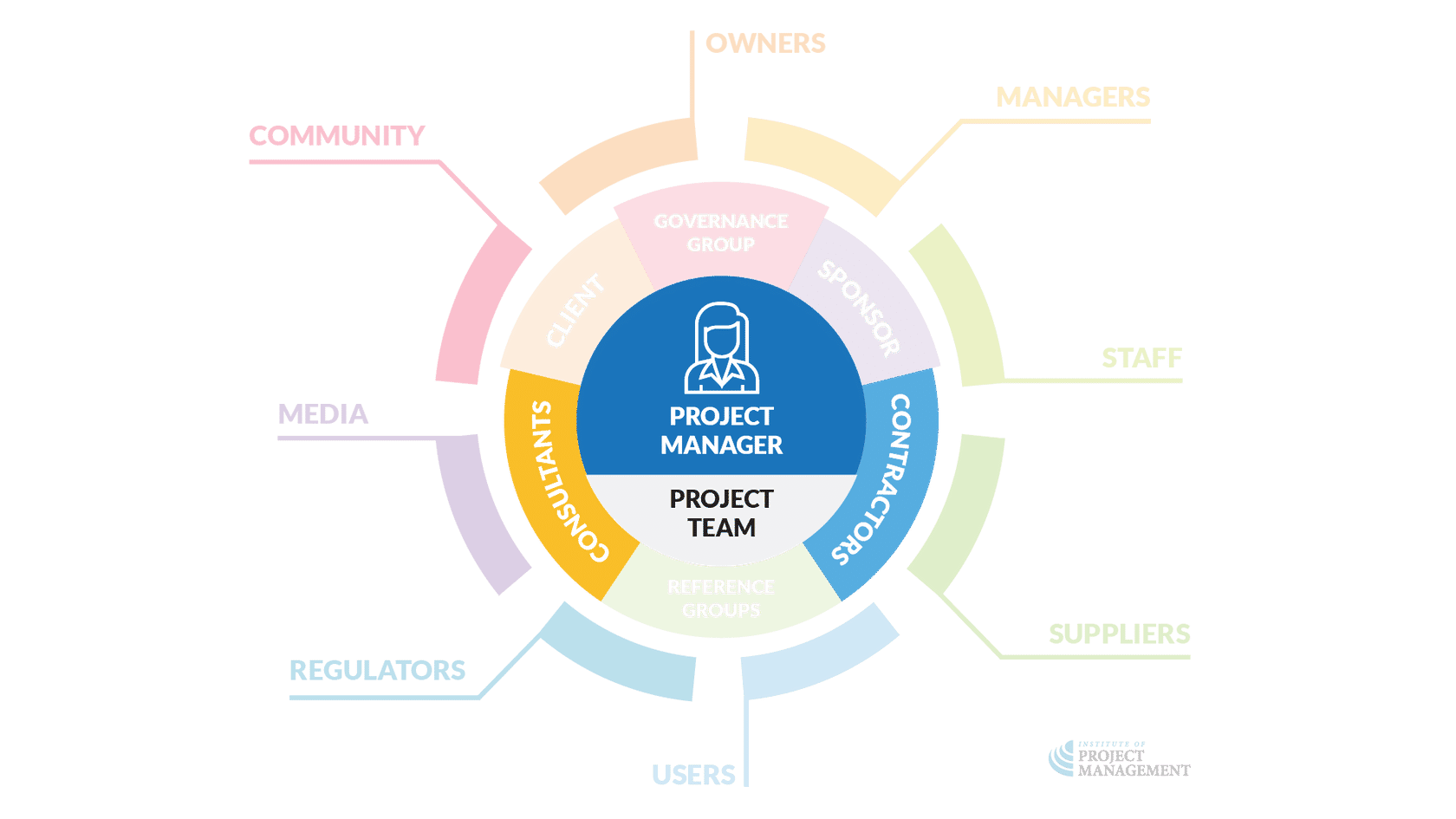2.2 The project team
Project manager

In new and expanding fields like electronics, nucleonics, astronautics, avionics, and cryogenics, a new type of manager is being bred. Although he goes by many titles, the one most generally used is project manager. His role in modern industry deserves more scrutiny than it has received from students of management and professional managers.
Paul O. Gaddis, The Project Manager, Harvard Business Review (May-June 1959).

Project managers are authorized and empowered by the performing organization to deliver the project’s outputs.
This is a challenging, high-profile role with significant responsibility and shifting priorities.
It requires flexibility, good judgment, strong leadership and negotiating skills, and a solid knowledge of project management good practices.
A project manager (PM) must understand project detail but manage from the overall project perspective.
As the person responsible for the success of the project, a project manager is in charge of all aspects of the project, including:
- Developing the project management and related plans
- Leading the project team to deliver those plans successfully
- Identifying, monitoring, and responding to opportunities and risks, and
- Providing accurate and timely reporting of project performance.
The project manager is also the lead person responsible for communicating with all other stakeholders; the PM is the center of the interactions between stakeholders and the project itself.
Importantly, this also involves managing the inevitable conflict in project environments.
Mature organizations also involve the project manager in developing the business case and conducting the project review, even though the PM may not lead this process.
Project team

Project managers will often lead a team of individuals who bring to bear the diverse mix of technical skills required to deliver the project tasks.
They are mainly drawn from within the organization performing the project and, as well as technical experts, may include dedicated schedulers, cost controllers, and administrators to assist with the project processes.
Project teams might also include specialist expertise recruited from outside the organization, such as contractors (who perform project work) and consultants (who offer expert advice).
The challenges of harmonizing this complex mix of full-time, part-time, and contracted individuals – many of whom are working together for the first time and under the stress of the triple constraints – are addressed in the later Module on Project Delivery.
Ultimately, every project demands a single point of authority.
Sub-projects within a larger endeavor might each have their own sub-project manager, but a single point of decision-making and control makes for the most efficient outcome in circumstances with limited time and resources.
The necessary checks and balances occur at other organizational levels – levels we will consider in the next few topics.
